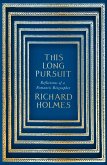In "Early Letters of George Wm. Curtis to John S. Dwight; Brook Farm and Concord," the reader is provided with a fascinating correspondence that illuminates the intricate intellectual and social landscapes of 19th-century America. Curtis, renowned for his eloquent prose and reformist ideals, employs a reflective literary style that blends personal narrative with broader philosophical musings on transcendentalism and social reform. Set against the backdrop of the utopian community of Brook Farm and the intellectual hub of Concord, these letters serve not only as personal correspondence but as a window into the zeitgeist of an era marked by idealism and experimentation. George William Curtis (1824-1892) was a prominent figure in American literature and social commentary, deeply involved with the transcendentalist movement and reform efforts of his day. His close friendship with John S. Dwight, a fellow reformer and cultural critic, provided a fertile ground for ideas that would transcend their immediate time. Curtis's experiences and observations of Brook Farm, alongside his engagement with influential figures such as Hawthorne and Emerson, deeply informed his perspectives on democracy, egalitarianism, and the role of art in society. This collection is highly recommended for readers interested in the interplay of personal experience and social philosophy. Curtis's letters reveal not only his literary brilliance but also the fervent spirit of inquiry and reform that characterized his era, making this work a valuable resource for understanding the foundations of American thought.
Dieser Download kann aus rechtlichen Gründen nur mit Rechnungsadresse in A, B, BG, CY, CZ, D, DK, EW, E, FIN, F, GR, H, IRL, I, LT, L, LR, M, NL, PL, P, R, S, SLO, SK ausgeliefert werden.









